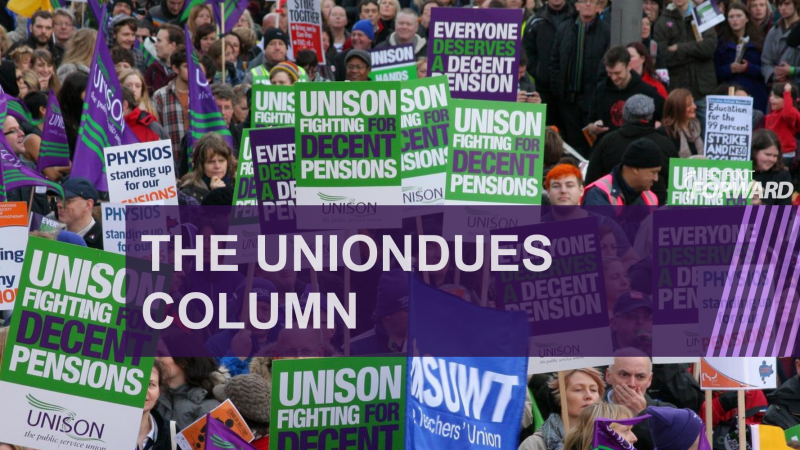Many of their members got no support from the coronavirus income protection schemes, Simon Sapper writes.

Simon Sapper is a trade unionist and host of the UnionDues podcast. The new episode goes live at midday this Tuesday.
The latest UnionDues podcast features an in-depth discussion with Zita Holbourne – PCS national vice-president, co-founder of Black Activists Rising Against Cuts, and co-chair of the Artists Union of England (AUE). The last of these roles is the focus this week.
Although Zita’s work on civil rights, anti-racism, with the TUC, PCS and others is arguably of more weight, when do we ever get to talk about unionising and the world of visual artists?
So, meet the AUE – founded in 2014, ‘staffed’ entirely by volunteers, and with a membership highly vulnerable to sharp employment practices. Many were not covered by any of the government’s Covid income protection schemes.
Since when did artists become preoccupied with unionisation? The answer, like fashion models, podcasters, and other visual creatives, is often found in ten years of austerity and the explosion of precarious work.
“We deal every day with members who say they’ve been asked to produce work for free, had contracts reneged upon, and suffered with poor unclear terms and conditions,“ says Zita.
What can be done about it? Zita points with justifiable satisfaction to the union’s Good Practice Charter, which invites employers and commissioners to sign up to proper standards around Valuing and Rewarding Artists, Health & Safety, Diversity and Equality, Work with Trade Unions, Social Responsibility, and Mental Health in the Workplace.
It’s the brainchild of AUE founder-member Theresa Easton, and was drawn up by a working group – co-incidentally comprised entirely of northern artists – and it is already bearing fruit. It’s been endorsed by organisations such as Monkfish Productions Trapped In Zone One, Art In Liverpool and Pavilion Hive. As an illustration of something that simultaneously services existing members and organises new ones, it takes some beating.
As a small volunteer-run body, Zita acknowledges that it can sometimes be hard at AUE to find space and time to think strategically, but Brexit followed by the pandemic means that certainly “we do need a cultural recovery” – and Zita’s engagement with a sister union in Canada and the global PSI federation gives useful food for thought on how this can be achieved. Local authorities could play a major role in helping the cultural recovery.
Much contemporary art is criticised as elitist at best, unimportant at worst. But the AUE’s national banner is clear about its importance for working people: “Industry without Art is brutality.” It’s part of what makes us human.
Zita explains: “Art crosses borders, art has no borders,” – which is why the custom and practice of international solidarity comes readily to the AUE. Zita describes the commonality that links AUE to her other campaigning and artistic work: “I bring socialist values and equality at the heart of everything into all the roles I play.”
Also this week on UnionDues: Glasgow University Professor of Work and Employment Mel Simms has a barnstorming #thought4theweek asking the $64k question – What are we organising for? Pain, sorrow, frustration and waste lie in wait for those who don’t know the answer.
Plus of course LFF’s very own Josiah Mortimer with a preview of the Radical Roundup, and a look at the Bureau of Investigative Journalism’s exposé of broken promises for Care workers.
This is the last episode of our current series. We will have a couple of specials over the next few weeks – one on the enduring legacy of the Matchgirls’ dispute, and another featuring ADCU General Secretary (and Supreme Court winner) James Farrar on life in a “new union” and taking on Uber.
You can access all past shows here.
To reach hundreds of thousands of new readers we need to grow our donor base substantially.
That's why in 2024, we are seeking to generate 150 additional regular donors to support Left Foot Forward's work.
We still need another 117 people to donate to hit the target. You can help. Donate today.



